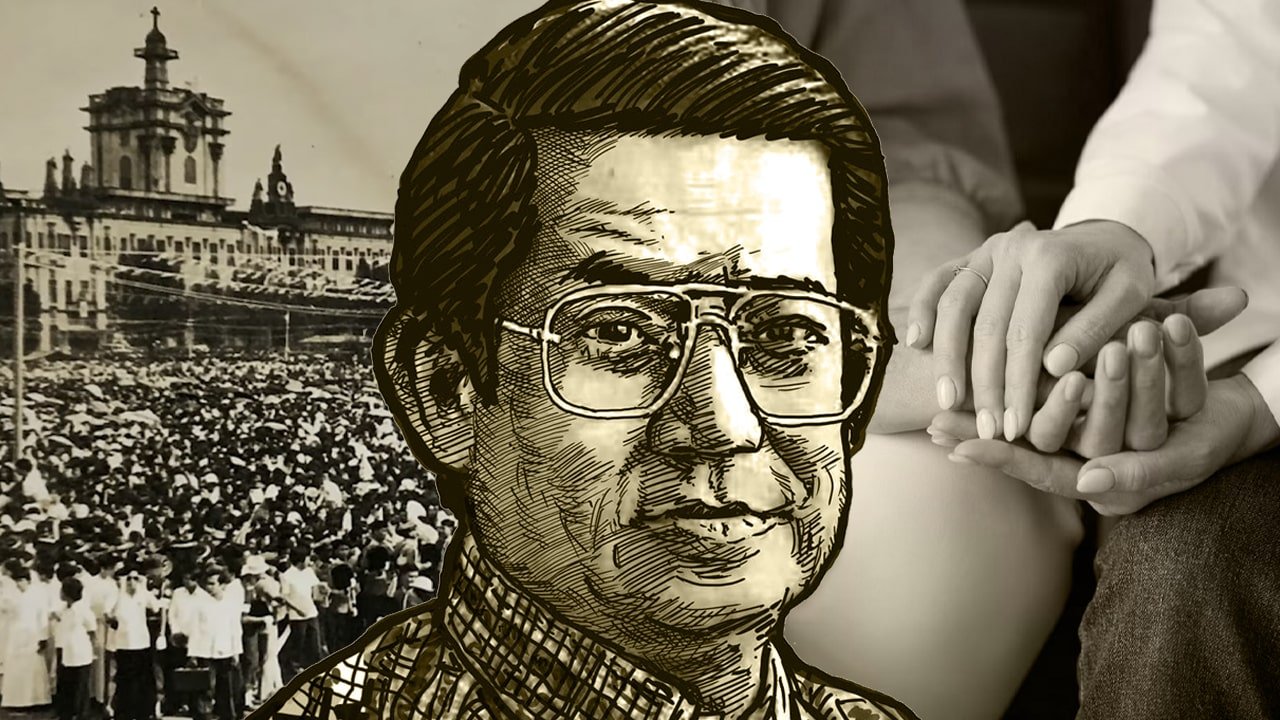The Life and Legacy of Benigno ‘Ninoy’ Aquino Jr.
Benigno “Ninoy” Aquino Jr. was born on November 27, 1932, into a politically connected family in the Philippines. His early exposure to political life served as a foundation for his future endeavors, instilling in him a strong sense of civic duty and commitment to public service. Aquino pursued his education at the Ateneo de Manila University, where he developed a keen interest in political science and governance, which later propelled him into a prominent political career.
In the late 1950s, at a young age, Aquino began his political journey as the mayor of his hometown of Concepcion, Tarlac. His astute understanding of political dynamics and ability to connect with the citizenry quickly earned him recognition. His subsequent roles included serving as a senator and becoming a significant figure in the opposition against the regime of Ferdinand Marcos. Aquino was vocal in his criticism of the Marcos administration, particularly during a time when democratic freedoms were increasingly under threat.
In 1972, the Philippines faced significant turmoil as Marcos declared martial law, silencing dissenters and curtailing democratic rights. Aquino’s unwavering commitment to democracy led him to spend nearly eight years in prison, where he faced harsh conditions yet remained resolute in his beliefs. His imprisonment galvanized support for the opposition and drew attention to the rampant human rights violations occurring in the country.
Following his release, Aquino was allowed to seek medical treatment in the United States, but his longing for his homeland never wavered. He returned to the Philippines in 1983, recognizing the personal risks but driven by a desire to inspire hope in the Filipino people. Tragically, Aquino was assassinated upon his return to Manila, a pivotal event that ignited a widespread movement for democratic reform. His legacy endures as a symbol of courage and sacrifice, encapsulating the timeless struggle for democracy in the Philippines.
The Significance of Ninoy Aquino Day
Ninoy Aquino Day, commemorated annually on August 21, stands as a poignant reminder of the sacrifices made in the quest for democracy in the Philippines. This day honors the legacy of Benigno “Ninoy” Aquino Jr., whose assassination in 1983 became a pivotal moment in Philippine history. His death catalyzed a nationwide movement that ultimately led to the end of the Marcos dictatorship and the restoration of democratic governance. The establishment of Ninoy Aquino Day as a national holiday in 2007 reflects the collective acknowledgment of Aquino’s contributions to the fight for human rights and political reform.
The significance of this day extends beyond remembering an individual; it symbolizes the enduring struggle for democracy and the protection of civil liberties in the Philippines. Ninoy Aquino’s commitment to justice and equality resonates deeply in the current socio-political landscape, serving as a clarion call for Filipinos to remain vigilant in safeguarding their democratic rights. As a celebration of courage and resilience, this holiday urges the populace to reflect on their democratic values and the sacrifices made to secure these rights for future generations.
Ninoy Aquino Day also emphasizes the importance of civic engagement and activism. Commemorating this day involves various activities, including seminars, discussions, and community service events focused on fostering a deeper understanding of democratic principles. It encourages individuals to actively participate in the democratic process, ensuring that the lessons learned from Aquino’s life and death continue to inspire action against tyranny and injustice.
In conclusion, Ninoy Aquino Day is not merely a day of remembrance but an affirmation of the Philippines’ ongoing commitment to democracy and human rights. It serves as a powerful reminder of the sacrifices made by those who fought for freedom and encourages current and future generations to uphold these values.
Ninoy Aquino’s Impact on Modern Philippine Politics
Ninoy Aquino’s contribution to Philippine politics transcends his lifetime, leaving an indelible mark on modern governance and civic activism. His steadfast advocacy for democracy and human rights serves as a potent reminder of the importance of these values in the current political landscape. The principles he championed during his lifetime resonate deeply with ongoing political movements across the nation, reflecting a yearning for a government that prioritizes accountability and transparency.
Several political leaders today invoke Aquino’s ideals as inspiration. They draw on his legacy when addressing contemporary issues such as corruption, abuses of power, and the suppression of dissent. As citizens engage in discussion about their rights and responsibilities, they often reference Ninoy Aquino Day as a day of reflection and action. This annual celebration encourages the Filipino populace to unite in their demands for justice and freedom, reinforcing the notion that civic engagement is essential for a flourishing democracy.
However, the Philippines continues to grapple with challenges that threaten democratic institutions. The ongoing debate on press freedom, human rights violations, and electoral integrity underscores the relevance of Aquino’s message. Activist groups frequently remind their constituents of the sacrifices made by Aquino, urging them to remain vigilant against threats to democracy. These discussions are crucial, especially as the country navigates complex political dynamics that often mirror the struggles faced during Aquino’s time.
In essence, the legacy of Ninoy Aquino serves not just as a historical reference but as a catalyst for ongoing dialogue about the future of democracy in the Philippines. His enduring influence keeps alive the spirit of resistance and hope, empowering the next generation to aspire for a society built on the foundation of respect for human rights and the rule of law.
Commemorative Events and Activities
Ninoy Aquino Day is observed annually on August 21, serving as a poignant reminder of the sacrifices made in the pursuit of democracy in the Philippines. Across the nation and among Filipino communities worldwide, various commemorative events take place, reflecting the profound impact of the legacy left by Benigno “Ninoy” Aquino Jr. These activities allow individuals to engage with history, promoting a collective memory that honors not only Aquino’s life but also the broader struggle for democratic ideals in the Philippines.
In the Philippines, official ceremonies often commence with a moment of silence followed by floral tributes at key monuments and landmarks, particularly in areas historically significant to Aquino’s life and work. Government officials, civic leaders, and citizens gather to share poignant speeches and personal anecdotes, reinforcing the values of courage and integrity that Aquino embodied. Many municipalities also host community forums and discussions, inviting local scholars and activists to delve into topics surrounding democracy, human rights, and civic responsibility.
Filipino cultural organizations and universities frequently hold art exhibits and performances that depict pivotal moments from Aquino’s life, encouraging reflection on the importance of civic engagement. In addition, educational programs aimed at younger generations are implemented to foster a sense of awareness regarding the importance of democratic participation. Schools may organize essay contests or art competitions, motivating students to explore how they can contribute to a thriving society.
In diaspora communities, events such as candle-light vigils and virtual memorials allow Filipinos abroad to come together, reaffirming their connection to the homeland and the ongoing relevance of Ninoy Aquino’s message. The celebration of Ninoy Aquino Day ultimately serves not only to honor a fallen leader but also to inspire ongoing contributions to democracy, motivating individuals to reflect on their roles within the civic landscape, and ensuring that Aquino’s legacy continues to resonate for generations to come.



























